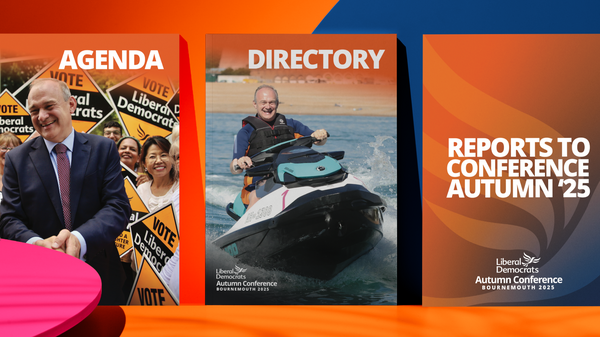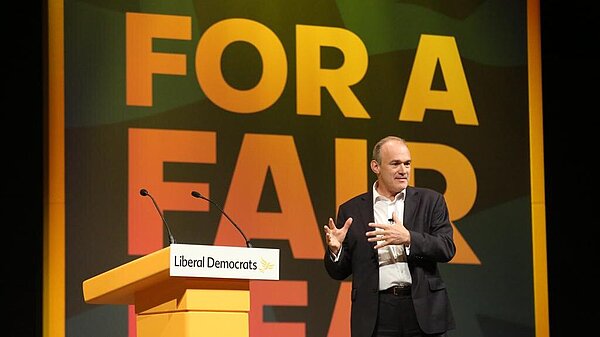Defending Women's Rights Across the Globe
F47 - Policy Motion
Motion as passed by conference
Conference notes that:
- Progress on women’s rights is being eroded, and women across the world, particularly women with intersecting marginalised identities including women of colour, disabled women, and LGBT+ women, are facing violence, abuse, and vulnerability at horrifying levels.
- In February 2025, Starmer announced a cut to Official Development Assistance (ODA) to 0.3% of Gross National Income (GNI), following ODA cuts by the previous Government. Aid cuts have disproportionately impacted programmes focusing on women and girls, and 90% of women–led and women’s rights organisations surveyed by UN Women have been affected by global foreign aid cuts.
- Misogyny is rising on social media and there is global backlash to women’s rights, with nearly a quarter of countries reporting backlash on gender equality in 2024.
- Opposition to abortion rights from the Trump administration threatens women worldwide, and the funding freeze to the United States Agency for International Development (USAID) will deprive women and girls of access to essential, life–saving reproductive healthcare.
- Violence against women is epidemic. one in three women have experienced sexual violence or physical violence, 640 million women over the age of 15 have experienced intimate partner violence, and 230 million women and girls have experienced Female Genital Mutilation (FGM).
- Women and girls are among those most at risk of living in poverty, with one in ten women living in extreme poverty, and women – particularly those who are young, from a migrant background, and with low educational attainment – disproportionately engage in low-paid and precarious work, such as the garment industry.
- The gender pay gap and economic inequality persists: 2.4 billion women of working age do not have equal economic opportunities to men, 708 million women are outside the labour force due to unpaid caring responsibilities, and 119 million girls are not in school.
- In 2023, the United Nations reported that the proportion of women killed in armed conflicts doubled and cases of conflict– related sexual violence increased by 50% from 2022, and just 29% of rape survivors could access the support they needed within 72 hours due to insufficient funding for gender–based violence response programmes.
- Afghanistan merits specific attention, being the most extreme example of state-enforced oppression of women in the world. Banned from secondary schooling, university education, and most paid work, the vast majority of women live in poverty and isolation.
- Women are vastly underrepresented in political leadership: three quarters of parliamentarians across the world are men and despite being essential to peace processes, women made up less than 10% of peace negotiators in 2023.
- Women are disproportionately affected by environmental degradation, with worst–case scenario estimates that 236 million more women and girls could face food insecurity by 2050.
- The British public lack confidence in the Government’s current approach, with only 37% (YouGov, May 2025) believing that the UK Government cares about the rights of women and girls.
Conference believes:
- The UK should strive to be a global leader in defending women’s rights and fighting against the growing backlash to gender equality, especially amongst some young men.
- All women and girls deserve safety, equal rights and access to opportunities, and bodily autonomy.
- Gender equality is essential for peace, security, and economic prosperity, alongside upholding human rights.
- Women–led and women’s rights organisations must be at the centre of responses to humanitarian crises and efforts to strive for global gender equality.
Conference calls on the UK Government to:
- Unreservedly condemn the global backlash to gender equality and rising misogyny and gender–based violence, striving to become a world leader in standing up for the rights of women and marginalised communities and opposing all forms of injustice and oppression.
- Provide an annual report to Parliament on the work of the UK Special Envoy for Women and Girls, highlighting progress and persistent challenges in promoting the UK’s role as a leader on women’s rights.
- Develop a roadmap to restore UK aid spending at 0.7% of GNI, targeting at least 20% of UK aid on striving for gender equality and considering how aid spending decisions affect marginalised communities, including long–term funding commitments for gender equality programmes, women’s rights organisations, and women–led organisations.
- Centre the need to achieve gender equality in all humanitarian action, crisis response and diplomacy, acknowledging the need for an intersectional and cross–departmental response to gender injustice.
- Hold social media companies to account on tackling misogyny online, putting pressure on these companies to implement stronger content moderation and address how their algorithms promote misogynistic content, and prioritise efforts to improve young people’s digital literacy and awareness of their digital diets.
- Advocate for the right to abortion and access to reproductive healthcare, condemning the attacks on the right to choose from the Trump administration and the USAID funding freeze.
- Act to be a global leader in ending violence against women and girls, including by:
- Actively encourage more countries to ratify the Istanbul Council of Europe Convention on preventing and combating violence against women and domestic violence.
- Increasing the proportion of ODA spent on efforts to reduce violence against women and girls and support survivors, ensuring that initiatives are expert–led, centring women–led and women’s rights organisations.
- Supporting education and community initiatives which help to reduce violence against women and girls and empower young girls, such as Girls’ Clubs.
- Prioritising the Government’s Preventing Sexual Violence in Conflict Initiative, by increasing funding, especially for women–led and women’s rights organisations, fostering survivor–led global collaboration, and ensuring addressing sexual violence is a priority in conflict.
- Working to eradicate FGM by implementing health education interventions, engaging with communities including religious and community leaders to drive social change, and committing sufficient funding to relevant grassroots organisations.
- Continue its pressure on the Taliban regime by not recognising it as Afghanistan’s legitimate government, working with partners to use leverage such as the unfreezing of Afghan assets and the lifting of sanctions on Taliban leaders, to improve Afghan women’s rights, while investing in women’s projects, particularly in small and medium enterprises in places where they are still permitted a role, and online education.
- Champion women’s economic empowerment by advocating for recognition of the value of unpaid care work, promoting equal economic rights and opportunities for women, and supporting efforts to improve women’s access to finance and resources.
- Promote women’s political representation, using soft power to promote gender quotas while working with organisations to address the barriers to women’s political participation, such as access to finance and online harassment.
- Leverage diplomatic efforts to ensure that both global and local woman leaders, as well as women–led and women’s rights organisations, are empowered to participate in humanitarian action, peacebuilding, and conflict resolution.
- Advocate for gender justice to be embedded in approaches to global green energy transitions, leading by example domestically, and fostering international cooperation towards this aim.
Applicability: Federal.
Amendments
Amendment One
PASSED
Submitted by: Liberal Democrats Overseas
Mover: George Cunningham
Summation: Caroline Voaden MP
After viii) (line 43) insert:
xi) Afghanistan merits specific attention, being the most extreme example of state-enforced oppression of women in the world. Banned from secondary schooling, university education, and most paid work, the vast majority of women live in poverty and isolation.
After 6. (line 89), insert:
a) Actively encourage more countries to ratify the Istanbul Council of Europe Convention on preventing and combating violence against women and domestic violence.
After 6. d) line 106, insert:
7. Continue its pressure on the Taliban regime by not recognising it as Afghanistan’s legitimate government, working with partners to use leverage such as the unfreezing of Afghan assets and the lifting of sanctions on Taliban leaders, to improve Afghan women’s rights, while investing in women’s projects, particularly in small and medium enterprises in places where they are still permitted a role, and online education.
Amendment Two
PASSED
Submitted by: 12 members
Mover: Monica Harding MP
Summation: To be announced
After x) (line 51) insert:
xi) The British public lack confidence in the Government’s current approach, with only 37% (YouGov, May 2025) believing that the UK Government cares about the rights of women and girls.
After 1. (line 68) insert:
2. Provide an annual report to Parliament on the work of the UK Special Envoy for Women and Girls, highlighting progress and persistent challenges in promoting the UK’s role as a leader on women’s rights.
Mover: 5 minutes; all other speakers: 3 minutes. For eligibility and procedure for speaking in this debate, see pages 6-7 of the agenda. You can submit a speaker's card online here from Monday 15 September up to 11.10 Tuesday 23 September or in person.
The deadline for amendments to this motion is 13.00 Monday 8 September; you can submit amendments online here, see pages 9–10 of the agenda for more information. Those selected for debate will be printed in Conference Extra and Tuesday’s Conference Daily. The deadline for requests for separate votes is 09.00 Monday 22 September; you can request separate votes here, see page 5 of the agenda for more information.
Image: UN Photo/Mona Elfateh, via UN Women



